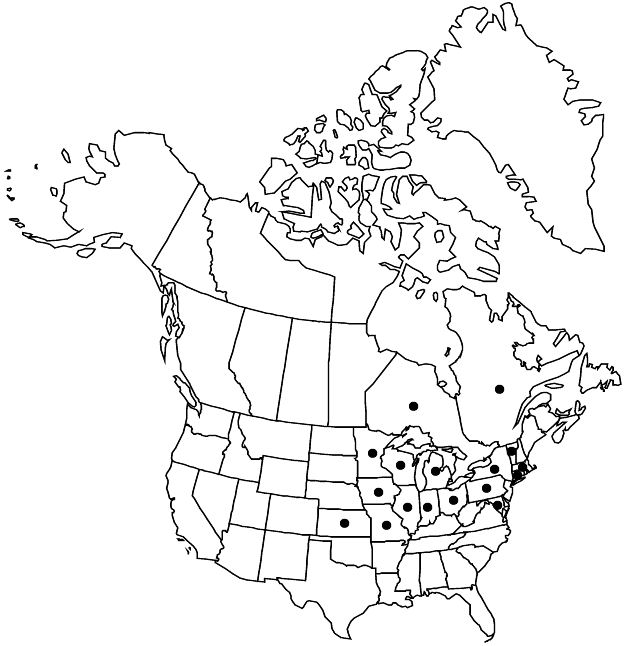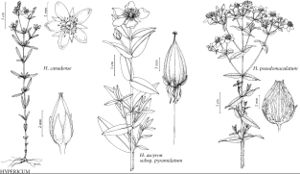Hypericum ascyron subsp. pyramidatum
Bull. Nat. Hist. Mus. London, Bot. 31: 58. 2001.
Herbs erect, branched from base and often with strict, narrowly ascending branches, 5–20 dm. Stems: internodes 4-lined at first, then 4-angled. Leaves spreading, sessile, amplexicaul; blade ovate-lanceolate to lanceolate or oblong, 40–85 × 18–37 mm on main stem, smaller distally and on branches, base rounded to cordate, margins plane, apex usually acute to apiculate, sometimes obtuse, midrib with 4–7 pairs of branches, tertiary veins densely reticulate toward margins. Inflorescences cylindric to narrowly pyramidal, 1–35-flowered. Flowers: sepals ovate to lanceolate or oblong-elliptic, subequal or equal, 8–13 × 4–8 mm, apex acute to acuminate; petals golden yellow, sometimes red-tinged, narrowly obovate to oblanceolate-falcate, 25–40 mm; styles (4–)5, 3–7 mm. Capsules ovoid, 12–20(–30) × 10–13 mm. Seeds 1.5 mm, narrowly winged; testa shallowly linear-reticulate.
Phenology: Flowering summer (Jun–Aug).
Habitat: Stream sides, roadside ditches, fens, damp meadows
Elevation: 0–1500 m
Distribution

Ont., Que., Conn., Ill., Ind., Iowa, Kans., Md., Mass., Mich., Minn., Mo., N.Y., Ohio, Pa., Vt., Wis.
Discussion
The American populations of Hypericum ascyron sometimes have been treated as distinct from those of eastern Asia, usually as H. pyramidatum. These populations can be distinguished by the combination of relatively broad leaves, acute sepals, and, usually, almost distinct styles; they are better treated as subsp. pyramidatum (see N. K. B. Robson 2001). The scattered American distribution of Hypericum ascyron, which seems to coincide well with earlier Native American campsites, led W. G. Dore (in herbarium notes) to suggest that it was distributed by aborigines for an as yet unknown reason (see J. M. Gillett and N. K. B. Robson 1981).
Selected References
None.
